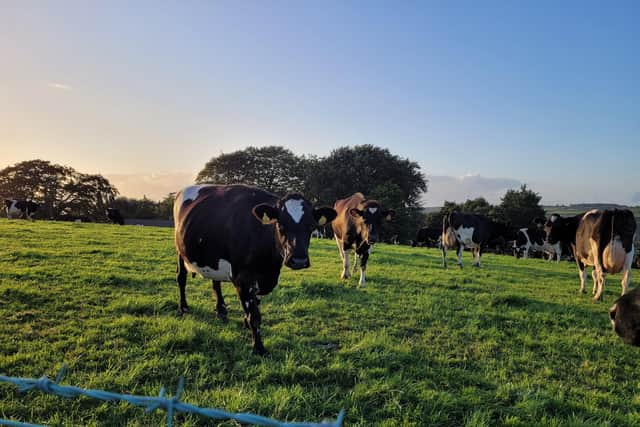NI carbon intensity indicators reflects progress of dairy sector - UFU
and live on Freeview channel 276
Ulster Farmers’ Union dairy chairman, Mervyn Gordon, was speaking after yesterday’s Royal Ulster Winter Fair.
Mr Gordon stated: “The latest DAERA results are testament to the efforts of the NI dairy industry in tackling climate change.
Advertisement
Advertisement
“The UFU continue to demonstrate how farmers are part of the climate change solution and these findings support that message.


“With two climate change bills currently going through the NI Assembly, including Claire Bailey’s Private Members Bill (PMB) which would be detrimental to the agri-food industry if it becomes law, the publication has come at a critical time.”
The DAERA NI carbon intensity indicators reinforce NI as a world leading food producer with local farmers working to the highest environmental and animal welfare standards.
Something which the PMB “fails to recognise”.
“At the Winter Fair, we highlighted that farming practices are gradually changing to combat climate change,” Mr Gordon continued.
Advertisement
Advertisement
“The NI dairy industry has reduced its carbon intensity since 1990 and supporting local dairy production that has been successful in continuing to lower its carbon footprint, is more logical than importing from other countries with a higher carbon footprint.
“If we were to import dairy products to meet demand, we would be contributing to carbon leakage which would be totally counterproductive.
“The latest indicators also illustrate the sustainability of the NI dairy industry.
“Through hard work, we’ve achieved an overall reduction of 35.7 per cent in greenhouse gas emissions.”
Advertisement
Advertisement
He added: “Our dairy sector is coming together to show the key role dairy farming has in delivering climate change solutions whilst continuing to deliver for consumers, local communities and the NI economy.
“We will continue to build upon the progress made to date and are calling upon government and local MLAs, to take this into consideration in the climate change debate,” Mr Gordon concluded.